You open your phone for a quick break, planning to watch just one or two reels. Next thing you know, an hour has passed. Sounds familiar? Let’s explore “brain rotting,” a term used to describe the mental numbness and decline in focus caused by endless scrolling through social media.
For Millennials and Gen Z, social media isn’t just entertainment, it’s a lifestyle. Platforms like TikTok, Instagram Reels, and meme pages provide instant gratification, keeping us hooked with an endless supply of content. But what’s the cost? Our minds!
Read More Here: 7 Foods That Make You Happy And Chase Away The Blues
What Is Brain Rot Meaning?
It is a term used to describe the feeling of mental decline caused by consuming too much online content that may have negative effects on society. It’s basically the idea that too much content consumption can “rot” your brain’s ability to think deeply or productively.
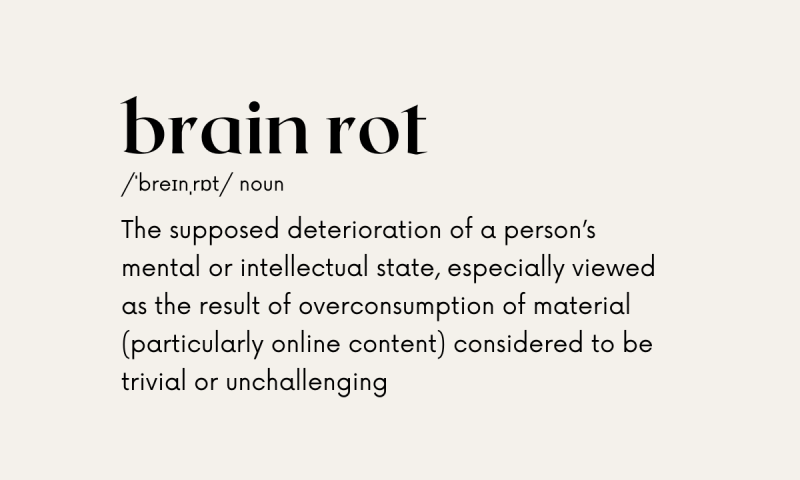
6 Signs of Brain Rotting You Need to Recognize
Below are the 6 signs of Brain Rotting taking over, before it’s too late…
- Short Attention Span – You can’t concentrate for too long.
- Constant Need to Scroll: You always reach for your phone even when you don’t necessarily need it.
- Bad at Focusing: You’re unable to go into deep thought or do something that will require a lot of complex tasks.
- Overwhelm with Information: You feel mentally drained from excessive content.
- Lack of Motivation: You lose interest in activities that take a lot of effort or creativity.
- Increased Anxiety or Stress – Stressing or anxiety-causing effect stemming from the steady bombardment by sensational content.
If these sound all too relatable then below are 5 habits you should end that contribute to brain rot and, more importantly, good habits to do before your brain turns to mush.
5 Everyday Habits That Might Lead To Brain Rot
1. Endless Doomscrolling Before Bed
You lie in bed, scrolling through social media, watching TikToks or Instagram Reels, only to look at the clock and realize it’s 3 AM. The cycle repeats, and you wake up the next day feeling tired and mentally foggy.
Late-night screen time messes with your sleep cycle, suppresses melatonin production (the hormone that helps you sleep), and keeps your brain overly stimulated. This makes it harder to fall asleep, leading to poor rest and mental exhaustion the next day.
Create a screen curfew
Put your phone away 30-60 minutes before bed to allow your brain to relax. Replace mindless scrolling with a book, a relaxing podcast, or even a brief mindfulness exercise. This helps you unwind without the constant dopamine hits and supports better sleep hygiene.
2. Watching Reels or TikToks for Hours
You start watching a funny TikTok or Reels video and suddenly find yourself watching for hours, unable to stop. Each video hooks you further, and by the time you look up, a large chunk of your day is gone.
Short-form content is specifically designed to be addictive. Each video gives you a dopamine hit, training your brain to crave more. Over time, this decreases your attention span and makes it harder to focus.
Use apps like One Sec
To add a delay before opening social media apps, which can break the addictive cycle. Set a time limit (e.g., 20 minutes) for apps like TikTok, Instagram, or YouTube Shorts. Take regular “dopamine detox” breaks, step away from your phone for an hour or two to reset your brain. This gives your brain space to focus on other activities, like working or creative thinking.
3. Constantly Checking Your Phone for Notifications
One of the signs of brain rotting is that you keep reaching for your phone to check notifications, even if you’re in the middle of work or trying to relax. You’re constantly distracted by likes, comments, messages, or news alerts, unable to focus for long periods.
When you constantly check your phone, your brain is trained to expect instant gratification and rewards from every notification. This makes it difficult to focus on tasks that require sustained concentration, such as studying or working on a project.
Turn off non-essential notifications
Stop your phone from constantly demanding your attention. Use Focus Mode on your phone during work or study sessions, which temporarily silences distractions. You can also challenge yourself to spend longer periods without checking your phone. Gradually increase the time between notifications to rebuild your ability to focus.
4. Consuming Too Much Meme Culture & Sensational News
You get caught up in viral memes, celebrity gossip, or sensational news stories. These often leave you feeling disconnected from reality, and the constant barrage of dramatic content can warp your perspective, making it harder to focus on more serious or important matters.
Memes and viral news can provide quick entertainment, but they often lack depth. Sensationalized headlines and misleading memes can influence your beliefs, making you less likely to challenge false information.
Balance your social media time
Follow reliable news sources and engage with content that encourages deeper thinking. Read books, listen to podcasts, or watch documentaries to expand your understanding of different topics. Before believing or sharing content, always ask yourself, “Is this accurate?” and seek out multiple sources for confirmation.
5, Never Letting Your Brain Be Bored
You’re always filling every free moment with your phone—whether it’s checking social media, playing games, or watching random videos. You never give your brain the chance to rest or process thoughts.
Constant stimulation prevents your brain from engaging in creative thinking or problem-solving. You lose the opportunity to daydream, reflect, or come up with new ideas. This leads to a lack of creativity and reduced mental clarity.
Create phone-free moments
During meals, walks, or commutes, embrace mindful boredom, give yourself time to simply think or observe the world around you. Let your mind wander and use this time for creativity and problem-solving.
Read More Here: 8 Everyday Habits That Are Damaging Your Brain (And What To Do Instead)
By swapping out these bad habits with healthier alternatives, you’ll give your brain the chance to recharge, focus, and think more deeply. So, the next time you catch yourself lost in an endless loop of TikToks, ask yourself: Is this making me smarter or just frying my brain?
Share your thoughts about what is brain rotting in the comments below!
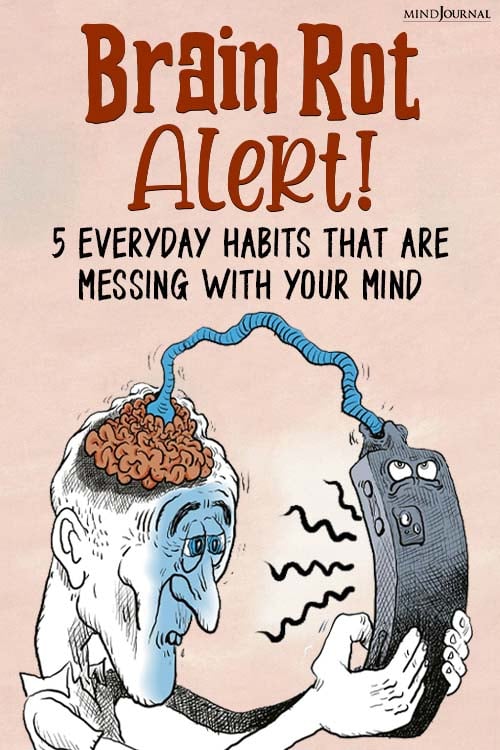
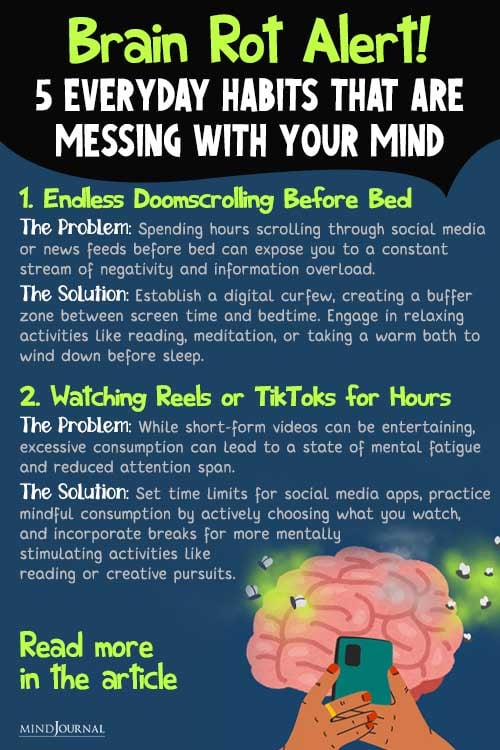
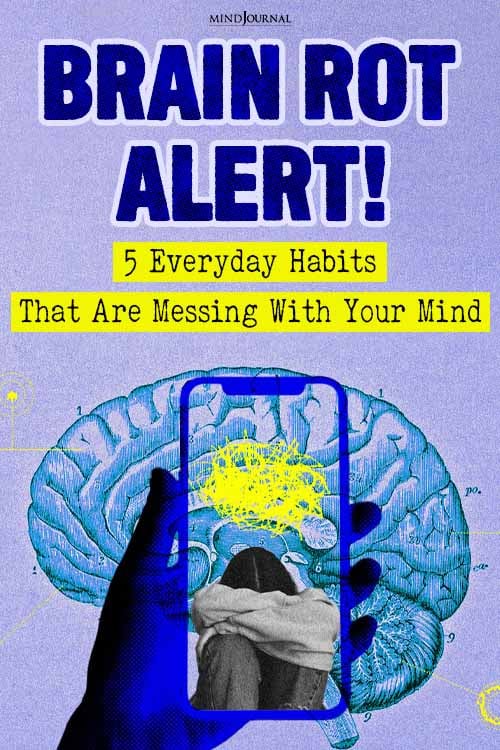






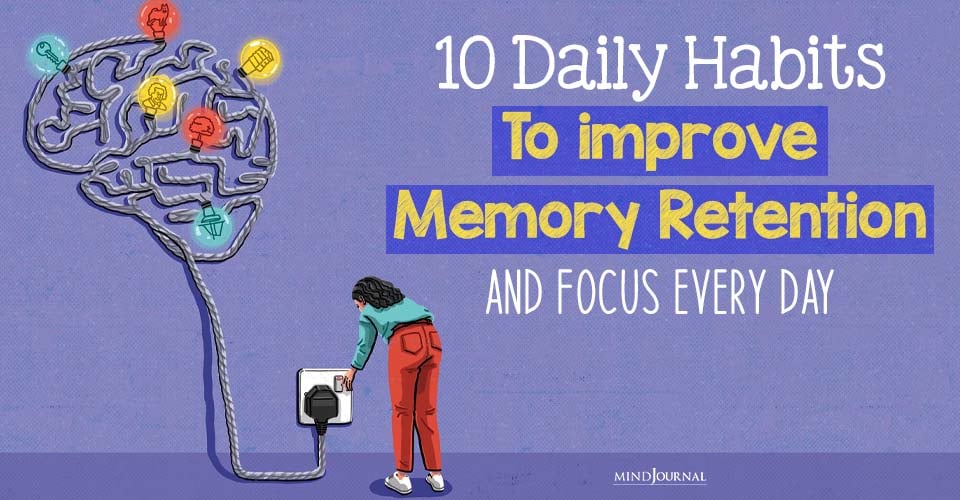

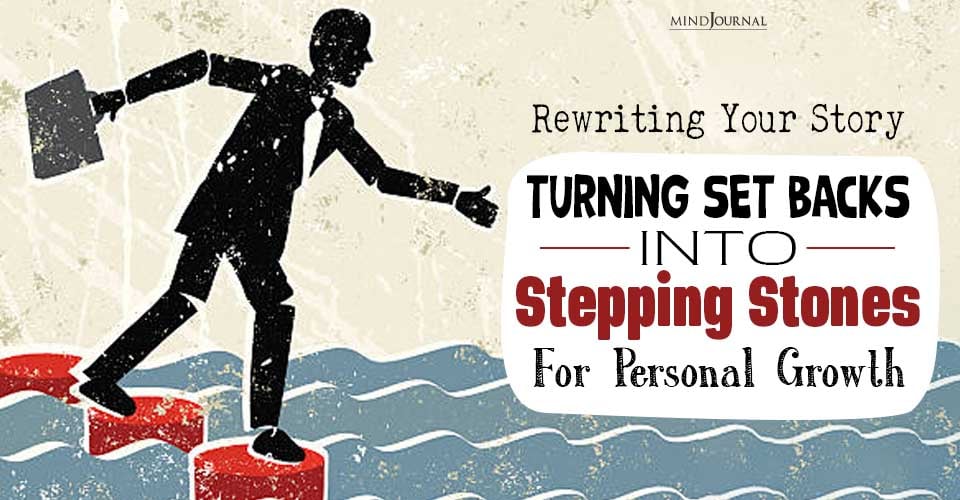
Leave a Reply